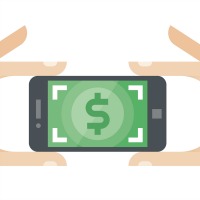While “tech innovation” in cars has previously been limited to USB outlets, Bluetooth and iPhone integration and maybe a touchscreen with limited “apps”, there has remained plenty of room for more innovation. Now with Tesla, Google, and others pushing self driving cars, and pushing other in-car innovation, we are suddenly seeing rapid and welcomed changes.
The emergence of tech companies like Google, Tesla, and Apple now competing with the automotive industry has fueled legacy car makers to innovate. In the past, automotive giants like Ford or Toyota, relied on government regulations forced upon them to innovate. For example, it wasn’t until the government mandated that all vehicles have rearview cameras that automakers started implementing them. But now, with tech companies developing car technology at a quicker pace, the legacy automakers are being forced to innovate not only to compete, but because customers are now demanding increased technology.
Recently, Amazon Echo, in conjunction with HeadsUP!, a San Francisco startup even began offering the benefits of a connected car at a reduced price tag. As Amazon’s Alexa becomes a more full featured and integral digital assistant, it makes sense that she’d travel with you to the connected car as well.
Volvo is one of several companies taking the approach of allowing consumer’s to enhance / control the existing driving experience with their smartphones. They’ve developed a way to replace the traditional key fob with your smartphone. Instead of using a fob to unlock and a key to start your car, they are touting a technology that would allow your smartphone to communicate via Bluetooth to your car to handle these tasks.
The race to innovate is intensifying. GM has invested heavily in self driving technology and on-demand services via a strategic investment in Lyft, and Ford recently spun off it’s own mobility subsidiary to drive innovation in this space. Toyota acquired an artificial intelligence firm and other automakers are recruiting staff from Silicon Valley in an attempt to compete. It will be interesting to see who wins this race in the end: the legacy automakers or the tech companies? And even more fascinating to see if customers will embrace this technology on the road.
Hopefully, this new wave of innovation will soon yield the driverless cars we’ve been promised, or perhaps provide the digital office / home theater to go, so that have something to occupy ourselves while the car is busy driving.
Want to stay on top of the latest in mobility developments? Sign up now.







